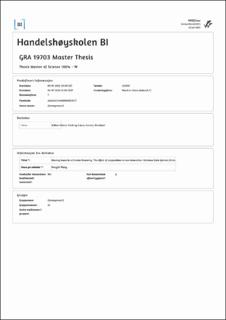Moving towards a Circular Economy: The effect of cooperation on eco-innovation. Evidence from German firms
Abstract
This paper aims to investigate how cooperation influences firms to conduct eco-innovations. The main research objective is to empirically ascertain the presence of a positive association between inter-firm cooperation and the development of eco-innovation. Our motivation to examine this relationship is driven by the inherent potential of eco-innovation to engender circular economic structures, thereby contributing to the creation of more sustainable economic systems.
After conceptualizing the relationship between circular economy, eco-innovation and innovation we conclude that the nature of eco-innovations reinforces the need for cooperation, making cooperation an essential requirement within the circular approach. While a substantial body of research has focused on identifying the drivers and impact of eco-innovation on firm performance, limited attention has been given to comprehensively understanding their development processes. Therefore, we empirically investigate the effect of cooperation on firms’ behavior to engage in eco-innovation. We further advance the comprehension of the significance of cooperation within distinct types of eco-innovations. Through a differentiation between product and process eco-innovation, we establish a connection between the specific characteristics of these different eco-innovation types and their propensity to benefit from collaborative endeavors.
By applying a probit regression model with data from German firms, we were able to find evidence of the relationship between cooperation and eco-innovation. Our findings show that cooperation indeed promotes eco-innovation. Secondly, we were able to show that cooperation specifically promotes product eco-innovation. However, no evidence could be found on the positive effect of cooperation on process eco-innovation.
With these findings, we were able to expand the research on cooperation and innovation specifically in the realm of eco-innovation. Our findings offer new evidence for managers that cooperative efforts should be a core part of their innovation development, especially for eco-innovation. Our results also offer insights for policy makers as regulations are an important driver for eco-innovation, but we propose that they must be specifically designed to promote cooperation and incentivize industry-wide circularity projects
Description
Masteroppgave(MSc) in Master of Science in Business, Strategy - Handelshøyskolen BI, 2023
